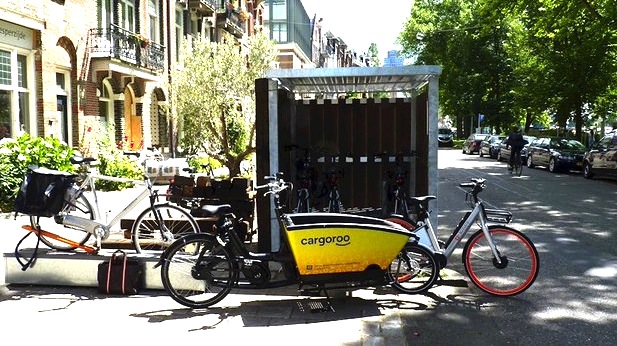April 30, 2021 - As of today it is crucial for both the health and the quality of life of our citizens to simultaneously promote sustainability and accessibility in transport within cities. In the face of this difficult and challenging task, electric mobility sources like eHUBS might be the best future solutions.

Indeed, e-Mobility hubs, shortly eHUBS, represent a crucial step towards the adaption of shared and electric mobility services. These dedicated on-street locations, where citizens can choose from different sustainable electric transport options for shared use, will represent a real alternative to the use of private car, by providing opportunities to increase shared and electric mobility in a truly innovative way.
What are eHUBS and where to find them?
eHUBS are on-street locations that bring together e-bikes, e-cargo bikes, e-scooters and/or e-cars, offering users a wide range of options to experiment and use in various situations. The idea is to give an high-quality and diverse offer of shared electric mobility services to dissuade citizens from owning private cars, resulting in cleaner, more liveable and pleasant cities.
eHUBS can vary in size (minimalistic, light, medium, large), type of location, and type of offer. They can be small and located in residential areas, with just one or two parking spots, or bigger and positioned close to stations and major public transport interchanges, but, in the end, the key is that they should always be where supply and demand meet.
Actions
Six partner cities from five different countries will realise and promote eHUBS and pave the way for others to do the same. The eHUBS implementation approach will differ according to the size and needs of the respective cities.
In doing so, it will develop knowledge, best practices and a blueprint that would lead to replication of the experiences in other cities and regions, as well as a consistent reduction of air pollution, congestion and CO2 emissions in the cities and a growing market for commercial shared e-mobility providers aligned with local policy goals.
Long term effects
By kick starting the mobility transition in 6 pilot cities we will set an example for other cities in Europe, which will be able to benefit from applying the blueprint and copying best practices. A large-scale uptake will cause a leverage by significantly reducing CO2emissions in the cities and creating a growing market for commercial shared e-mobility providers.
Read more here.


















